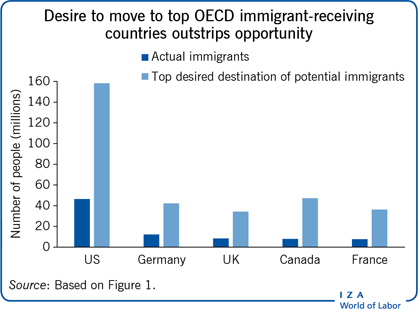Elevator pitch
Many immigrant destination countries face considerable pressure to change their immigration policies. One of the most innovative policies is auctioning the right to immigrate or to hire a foreign worker to the highest bidders. Visa auctions would be more efficient than current ways of allocating visas, could boost the economic contribution of immigration to the destination country, and would increase government revenues. However, visa auctions might weaken the importance of family ties in the migration process and create concerns about fairness and accessibility. No country has yet auctioned visas, although several have considered doing so.

Key findings
Pros
Auctions would allocate visas more efficiently across immigrants or employers.
By enabling workers with the highest-valued skills to immigrate, employer-based auctions could boost economic growth.
Government revenue would increase with a visa auction system, enabling governments to fund other programs, cut taxes, or reduce budget deficits.
Visa auctions would substitute market forces for government determination of who should be able to immigrate.
Auctions are a flexible alternative to complicated point systems for encouraging high-skilled workers to immigrate.
Cons
No visa auctions have been conducted, so their effects are only theoretical.
Auctions do not guarantee the admission of immigrants who will contribute the most to long-term economic growth.
Visa auctions might change the composition of immigrant populations in ways that are unpopular, particularly among immigrants who want to bring in family members.
Some potential immigrants and employers may view auctions as too complex or unfair.
Sending countries might be adversely affected if the composition of emigrants changes.